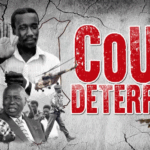Kenya’s deployment to Haiti marks the first African-led peace mission in the Americas. Explore the timeline, legal debates, on-the-ground realities, and what this bold act of solidarity means for Afro-Caribbean cooperation and global security.
A Dawn Call in Port-au-Prince
The sun had barely risen over Port-au-Prince when a group of Kenyan police officers began their patrol, weaving carefully through narrow streets once held by gangs. Children peeked from doorways, curious at the blue uniforms that had traveled halfway across the world. One officer, speaking to Le Nouvelliste, said simply: “We came to stand with Haiti, not above it.”
It a small moment in a mission that has come to symbolize a new chapter of African leadership abroad.
A Timeline of Solidarity and Complexity
- October 2023: The United Nations Security Council authorizes the Multinational Security Support (MSS) Mission, inviting Kenya to lead a police deployment to stabilize Haiti.
- February–April 2024: Kenya’s parliament and High Court debate the legality of deployment. The court temporarily halts it, citing constitutional concerns over the use of police forces abroad.
- June 2024: The first Kenyan contingent roughly 400 officers arrive in Haiti under the MSS framework, marking the start of Africa’s first peace mission in the Americas.
- September 2024: The UN renews the MSS mandate for another 12 months. Kenya signals plan to scale up to 2,500 officers.
- Mid-2025: A joint task force expands the mission’s scope, forming a Gang Suppression and Stabilization Force with stronger rules of engagement.
Mission and Mandate: Beyond Policing
The MSS is not a combat operation, but a support mission designed to reinforce the Haitian National Police (HNP). Kenyan officers train local counterparts in community policing, patrol planning, and intelligence sharing. The approach contrasts sharply with previous UN interventions focusing on mentoring and partnership rather than occupation.
Pull Quote — Kenyan Perspective:
“This mission is our responsibility; it shows Africa can lead beyond its borders.” Kenyan Foreign Ministry statement, June 2024.
However, as the situation on the ground worsened, strategy evolved. By 2025, international partners endorsed a more robust gang suppression model targeting violent enclaves in Port-auPrince and Cap-Haïtien.
The shift reflected both operational necessity and political risk: Kenya’s leadership had to balance symbolic solidarity with the real dangers of prolonged engagement in one of the world’s most unstable environments.
Politics at Home: Law, Legitimacy and Debate
In Kenya, the mission sparked fierce parliamentary and judicial debate. Critics argued that deploying police officers not military violated the National Police Service Act. Others raised concerns about costs, estimated at over KSh 7 billion, and the safety of personnel in a high-risk zone.
President William Ruto defended the deployment as both lawful and moral, calling it “an act of Pan-African solidarity.”
Ultimately, parliament ratified the mission after amendments ensured Kenyan officers would operate under UN protection and insurance frameworks.
Local Reactions: Hope, Fear, and Skepticism
In Haiti, reactions have been mixed. Many residents welcomed Kenya’s arrival, seeing it as a chance for renewed stability. Yet, skepticism persists among civil society groups who recall the abuses of earlier international forces.
Pull Quote — Haitian Voice:
“Security without accountability will not rebuild our institutions or trust.” Marie Lemaire, Haitian Human Rights Network, interview with Al Jazeera, July 2024. Local journalists have noted early signs of improved humanitarian access in parts of Port auPrince, but caution that without political consensus and economic reform, gains will remain fragile.
Operational Realities and Exit Conditions
Kenyan officers are embedded with the Haitian National Police, focusing on urban patrol coordination, logistics reform, and training modules for tactical units. They operate under strict rules of engagement limiting direct offensive action.
Success, mission planners say, will be measured by:
- The restoration of state control in at least 60% of Port-au-Prince;
- Reopening of schools, markets, and clinics in secured zones;
- Development of a roadmap for elections and institutional rebuilding;
A safe drawdown mechanism tied to Haitian capacity, not foreign timelines.
Still, experts caution that security alone cannot fix systemic collapse. Without political reconciliation, infrastructure repair, and economic recovery, peace will remain temporary.
A New Afro-Caribbean Horizon
Beyond security, the mission opens the door for wider Afro-Caribbean cooperation. Kenyan officials have proposed cultural and academic exchanges, trade facilitation for agricultural goods, and professional training partnerships with Haitian universities.
Such initiatives could transform a short-term deployment into a long-term bridge reconnecting Africa and the Caribbean through shared history, mutual learning, and economic opportunity.
Quick Context Box: Kenya–Haiti Mission
Attribute Detail
Troop/Police strength First contingent deployed June 2024 (approx. 400 officers); scaling toward 2,500 under renewed MSS mandate (2025).
Mandate UN-backed MSS to support Haitian National Police; later expanded to a Gang Suppression Force in 2025.
Goal Stabilize key regions, restore basic services, enable elections.
Partners Led by Kenya; supported by Jamaica, the Bahamas, Benin, and other states.
Duration Renewable 12-month mandates; expanded scope in 2025.
Sources UN Security Council Res. 2699 (2023); Kenyan Parliamentary Debates (Hansard); Al Jazeera, Reuters, Le Nouvelliste, UNDP Haiti briefings.
Why It Matters
Kenya’s leadership in Haiti is both an experiment and a statement proof that African nations can shape global peacebuilding, not merely receive it. It represents a historic return of African agency across the Atlantic, one rooted in shared ancestry and collective resilience.
Kenya’s mission to Haiti is both an experiment in African-led international action and a powerful symbol of diasporic connection. Its long-term value will be measured not only by territory regained or leaders arrested but by whether the operation strengthens Haitian institutions, restores civic life, and opens pathways for sustained Afro-Caribbean cooperation in governance, trade, and culture.
Related Posts
-
The death and rebirth of Kenyan football: Pride, policy,and the promise of a new era
On a humid Nairobi evening, matatus blaze their horns in traffic as touts lean out…
-
Kenya’s 1982 coup attempt: The broadcast, the blood, and the birth of a police state
At dawn on August 1st, 1982, Kenyans awoke to a voice that was not the…
-
Galloping through time: The story of Ngong racecourse and Kenya’s enduring love of horse racing
At the edge of Nairobi’s Ngong Forest, where the skyline yields to open turf and…


